Universal Horror Nights is bringing the spooky tales of Latin America to life
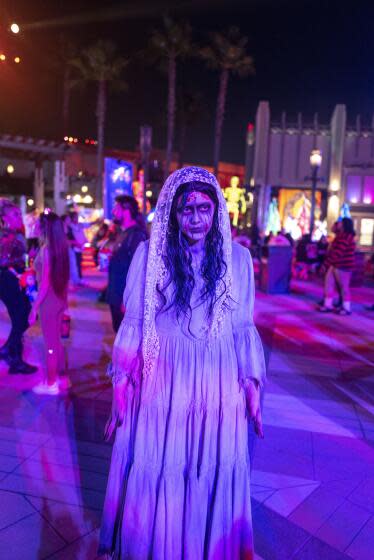
The mythical creatures from Latin American horror stories are haunting visitors at Universal Studios' Halloween Horror Nights. A new maze, "Monstruos: The Monsters of Latin America," is giving life to popular Latin American legends like Tlahuelpuchi, La Lechuza and El Silbón.
The maze is open throughout Horror Nights, which ends at the end of October.
“It occurred to me that there's just this untapped potential that speaks uniquely to our audience,” said John Murdy, creative director for the horror maze at Universal Studios.
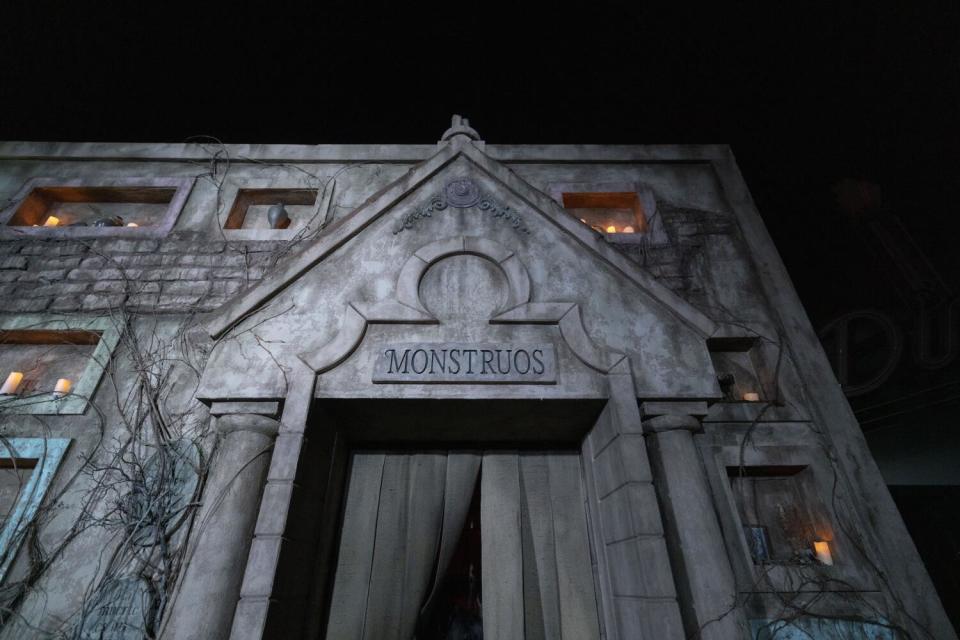
Noting the presence of Latinos in California and at Halloween Horror Nights, Murdy credits the creation of the maze to Latino horror fans, who have called for Latin American folklore representation at the theme park for more than a decade.
Read more: 'Satanic Hispanics' is bringing Latino horror to the big screen
“They'll just come up to me in the middle of the park and go, ‘Have you ever heard of La Llorona or have you ever heard of El Cucuy?’” Murdy said.
After hearing requests for Latin American monsters, Murdy brought La Llorona, the vengeful mother who drowned her own children in a jealous fit, to the Universal Scare Zone in 2010. In light of her popularity among attendees, she was given her own haunted house the following year.
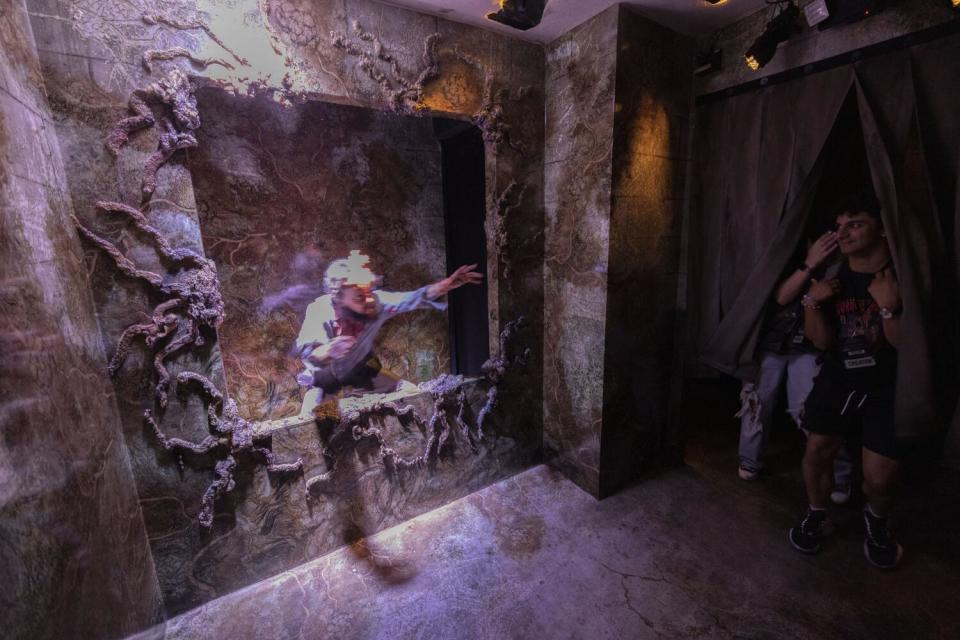
Actor Diego Luna was brought in as a creative consultant for the haunted house, a necessary step, Murdy says, in assuring the approach was culturally appropriate and authentic. Murdy said he asked Diego, "Tell me what you remember from being a child. What stories were you told?"
Murdy also consulted with actor Danny Trejo about El Cucuy, the boogeyman that takes away disobedient children. Trejo voiced El Cucuy, which replaced the Llorona haunted house in 2013.
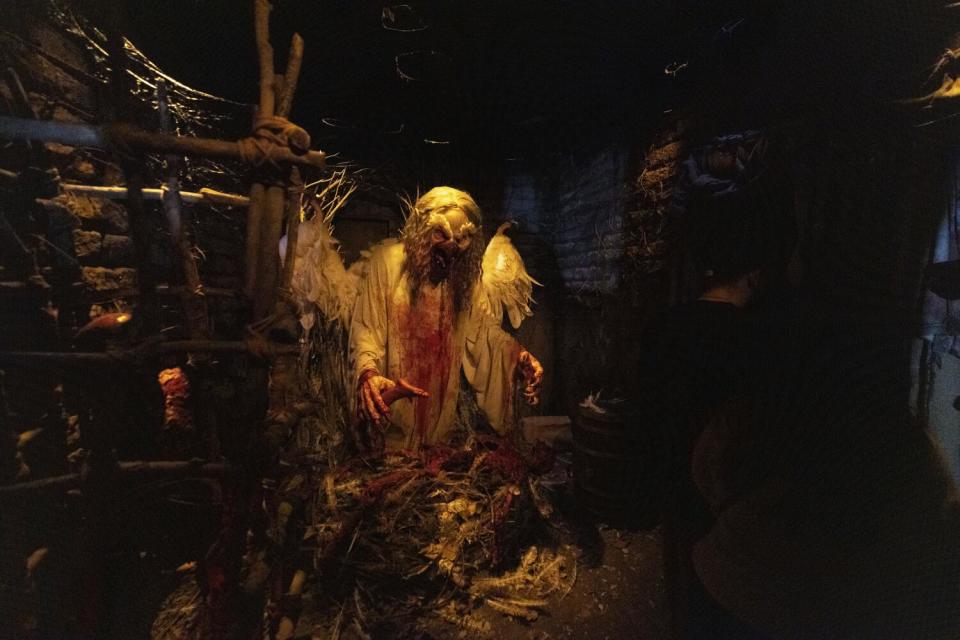
However, the mazes that focused on these Latin American folk tales were short-lived and did not continue in the Horror Nights event again until 2022. Murdy brought back La Llorona in 2022, along with other monsters in the nearby scare zones: El Cucuy, La Chupacabra, El Cadejo and more.
Read more: Mexico’s alien testimony is 'Primer Impacto'-core run amok
“We've basically created like a mini land within Halloween Horror Nights in Universal Studios Hollywood that's fully dedicated to Latin American myths and legends," he said.
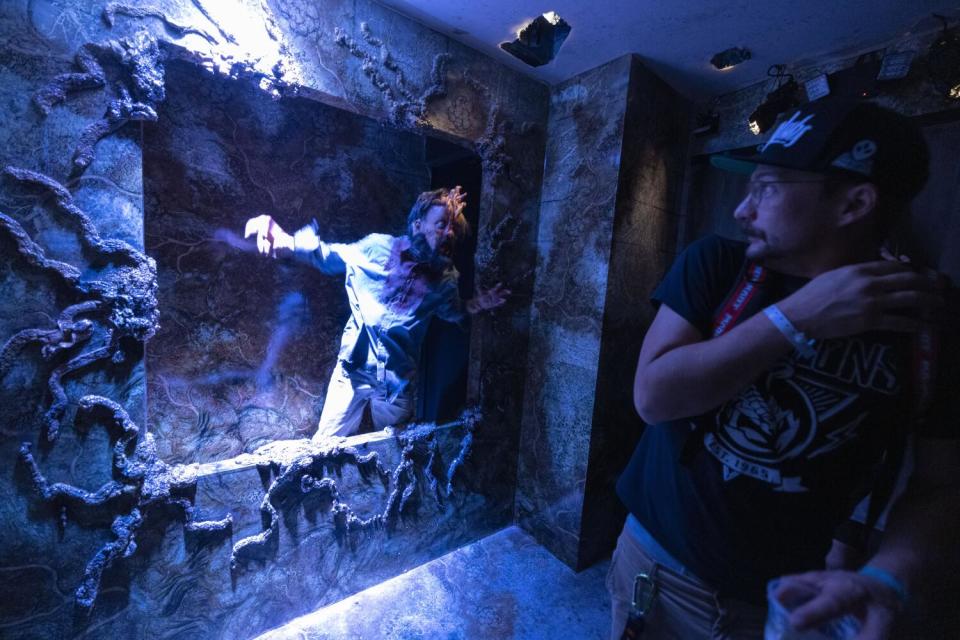
Visitors to the maze, located in the Parisian Courtyard, are greeted by La Muerte before entering the haunted house.
Inside, the first mythical monster that visitors encounter is Tlahuelpuchi, a cursed shape-shifting vampire witch with an insatiable desire for blood. Though variations of the story exist along the Nahua region of Mexico, Tlahuelpuchi typically turns into a Mexican turkey vulture.
The second monster to greet visitors is La Lechuza, a mythical creature from Mexico and southwest Texas. She is a half-owl and half-elderly woman, who seeks revenge on the village that put her to death for suspicions of her being a witch.
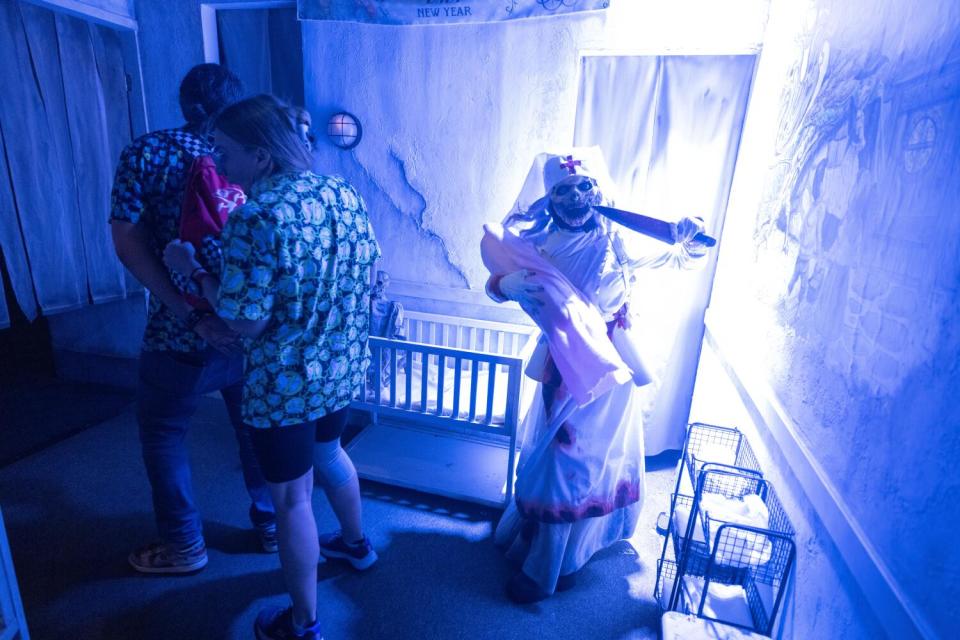
The third monster is El Silbón, a killing whistler with origins in Colombia and Venezuela. Though there are many variations of the tale, the most common one is of a young spoiled man falling in love with a woman that his father did not approve of. The father murders the woman, and in a fit of rage, the son murders the father. His grandfather comes home, beats his grandson for his actions, and condemns him to carry the sack of his murdered father’s bones into the woods.
These myths and legends are often used to explain the unexplainable in Latin American communities.
In his research, Murdy found that “Tlahuelpuchi” was listed as the cause of death for many premature infants from a region of Mexico in the 1950s.
Read more: Photos: Latino Angelenos celebrate independencia
“The parents immediately attributed it to this witch, so I think, if you can't accept the grief, you have to blame it on something,” Murdy said.
Murdy explained that these scary stories also serve as a form of discipline in Latino culture.
"It's how parents exert control over their kids," Murdy said. "It's like: 'Don't go out at night or La Llorona will get you.'"
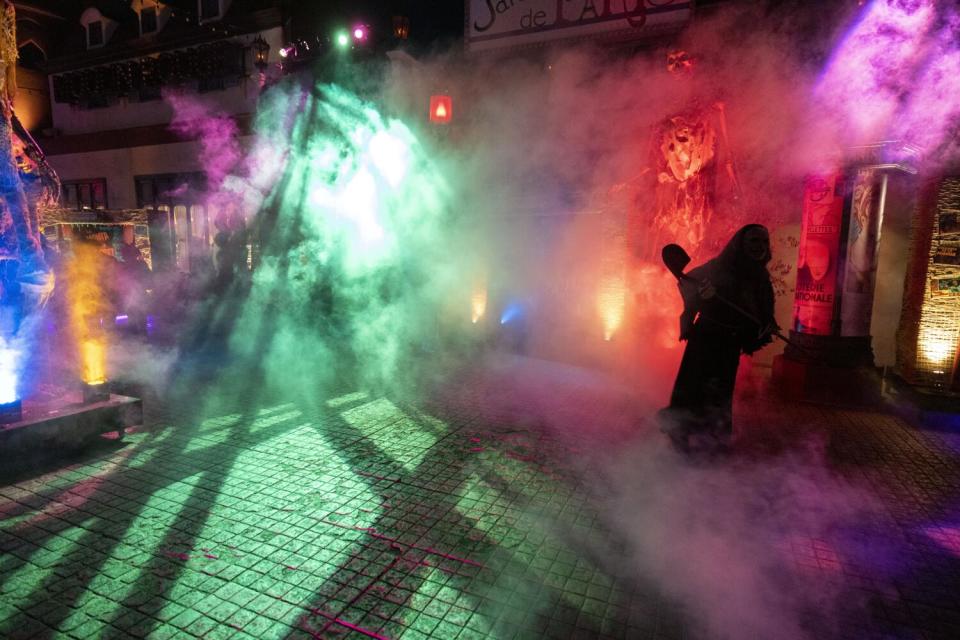
These tales of horror ring true to Latino visitors of the theme park who have their own family tales. April Luna first heard of La Llorona from her grandfather, who had an encounter with an unexplained figure.
“My grandpa said that he was roaming the streets alone, coming out of a bar in Mexico, and he was by a river, and then he said he heard someone crying,” Luna said. “He approached them and once they came face to face he said that she didn't look human. He just left running. That's the first time I heard of La Llorona and I was so scared.”
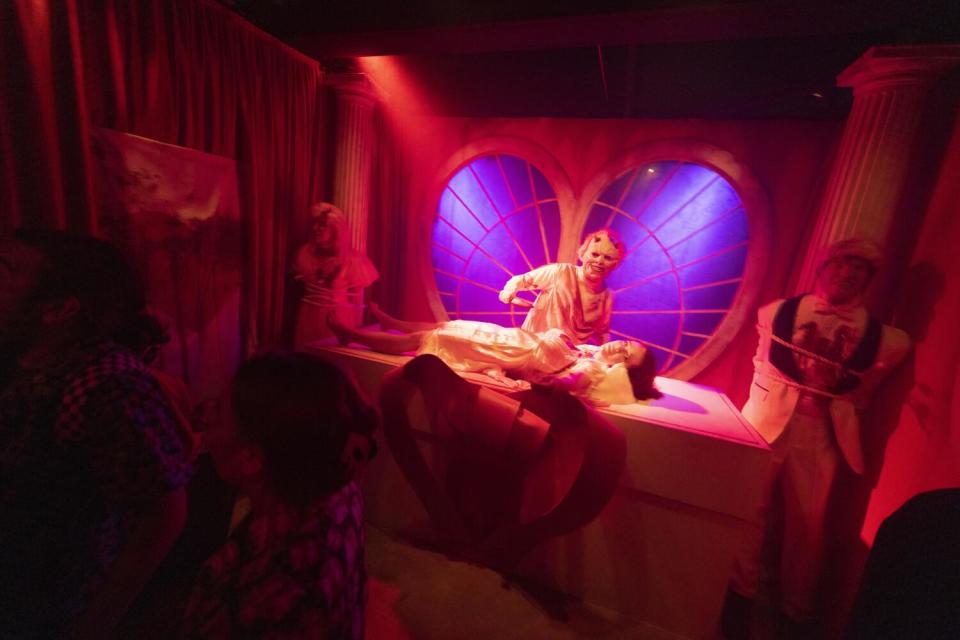
For someone who grew up with tales of La Llorona, El Cucuy and La Lechuza, "Monstruos: The Monsters of Latin America" brought all of Yamir Aleman’s fears to life.
“It was interesting to see how someone else portrayed our fears as what they thought our fears should be like,” Aleman said.
Read more: The best places to hear Latinx poets in Los Angeles
A lot of these mythological stories existed only in Aleman’s memory as the tales were passed on by his relatives. To see a physical representation in horror felt like he was living in those ancestral legends.
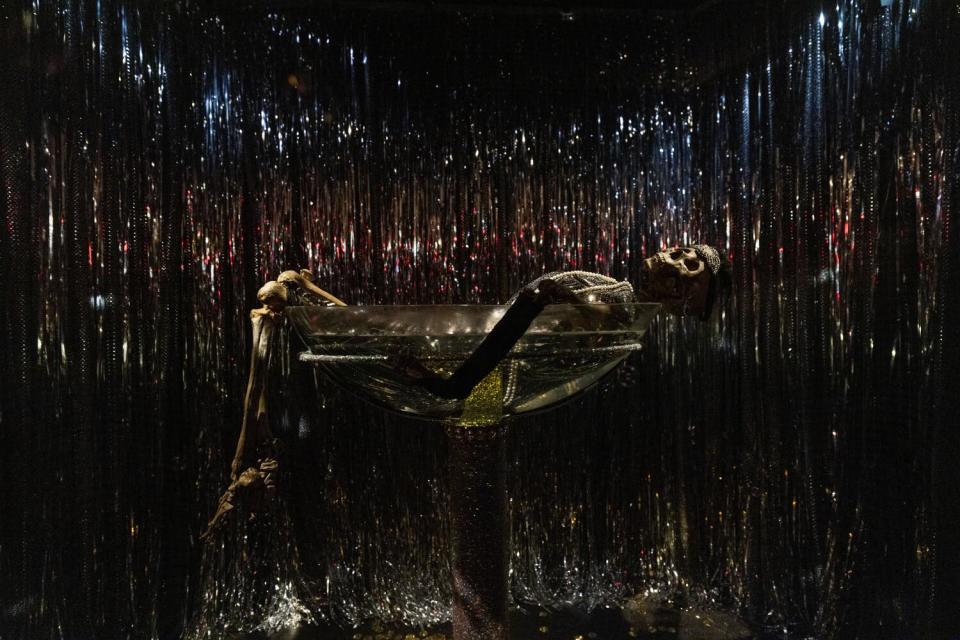
“We're living it. Like the stories of our ancestors, our grandmas, our great-grandmothers,” Aleman said.
Though these stories of monsters and tragedy might be new to the theme park, they are not new to the Latinos who grew up with them as cautionary tales. The impact of Latin American horror is a testament to the power of intergenerational storytelling that honors tradition in terror.
This story originally appeared in Los Angeles Times.

